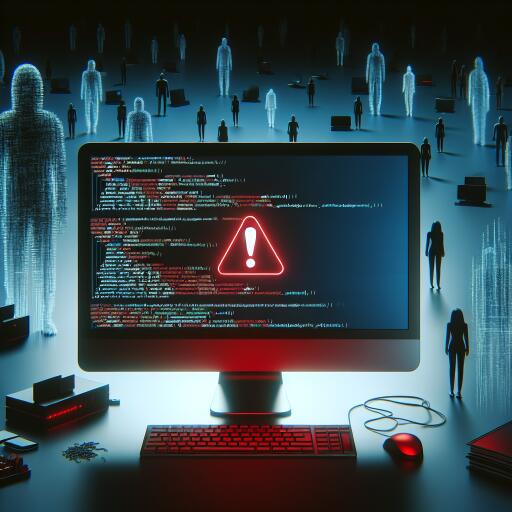Log4j Remote Code Execution Vulnerability: A Critical Alert for Millions Worldwide
The discovery of a critical remote code execution (RCE) vulnerability within the Apache Software Foundation’s Log4j, a widely adopted open-source Java logging library, has sent ripples through the cybersecurity world, with far-reaching implications for millions of users and businesses. Dubbed as “Log4jShell,” this vulnerability, identified as CVE-2021-44228, presents an urgent challenge to digital security frameworks globally. Cybersecurity authorities and experts are sounding the alarm over potential exploits by malicious actors, including nation-state associated attackers from China, Iran, North Korea, and Turkey.
Exploitation of Log4jShell in the Wild
Shortly after the vulnerability came to light, John Graham-Cumming, CTO of Cloudflare, revealed the company had encountered over 100,000 attempts per hour to exploit this vulnerability, making it one of the most aggressively targeted vulnerabilities in recent memory. Similarly, Microsoft’s security blog update highlighted ongoing attacks leveraging Log4jShell by various threat groups, marking an escalated threat landscape.
The Log4jShell vulnerability impacts Log4j2 versions up to 2.14.1, exposing millions of devices and applications to potential exploitation. Attackers can execute arbitrary code from LDAP servers by controlling log messages or parameters, taking advantage of the Java Naming and Directory Interface (JNDI) features within Log4j. This unprecedented access allows attackers to infiltrate systems, deploying malware or conducting further nefarious activities.
Response and Mitigation Efforts
In response to the emerging threat, the Apache Software Foundation issued an immediate fix with Apache Log4j 2.15. However, a subsequent vulnerability, CVE-2021-45046, necessitated a further update to Log4j version 2.16.0 (or 2.12.2 for Java 7 users), addressing additional security concerns and disabling JNDI by default.
Given the widespread use of Log4j in various consumer and enterprise services, websites, applications, and operational technology products, the Cybersecurity and Infrastructure Security Agency (CISA) and other security organizations have issued advisories urging users to upgrade or apply mitigations promptly. The urgency of these advisories reflects the severity and broad impact of the Log4jShell vulnerability.
The Scale of the Threat
Cybersecurity expert Bruce Schneier emphasized the severity of the situation, pointing out the simplicity of the exploit and the broad range of possible impacts. Hackers can initiate an attack through seemingly innocuous methods, such as embedding malicious code in an email or user account name, making the vulnerability particularly insidious and challenging to defend against.
Cloud provider and security firms have been at the forefront of detecting and mitigating efforts against the Log4jShell exploit. Cloudflare may have been among the first to identify the threat, emphasizing the vulnerability’s potential scale and impact given Java’s omnipresence in digital infrastructures and applications.
The Way Forward
As the digital community scrambles to patch and protect their systems against this significant threat, the Log4jShell vulnerability serves as a stark reminder of the continuous and evolving challenges in cybersecurity. Organizations are urged to conduct thorough assessments of their use of Log4j and to update or mitigate as recommended by security advisories. The race against time to secure potentially vulnerable systems underscores the critical importance of vigilance, rapid response, and ongoing education in the face of cybersecurity threats.
With malicious actors seeking to capitalize on vulnerabilities for their gain, the Log4jShell incident highlights the need for a robust and proactive security posture, emphasizing preparedness, prevention, and partnership across the cyber landscape to defend against the threats of today and tomorrow.










